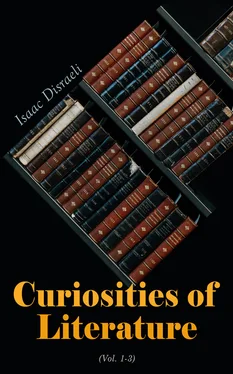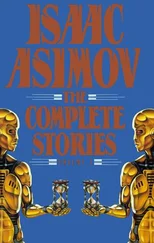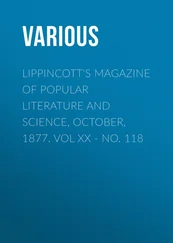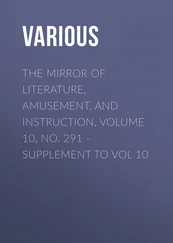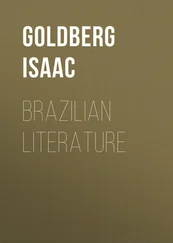Isaac Disraeli - Curiosities of Literature (Vol. 1-3)
Здесь есть возможность читать онлайн «Isaac Disraeli - Curiosities of Literature (Vol. 1-3)» — ознакомительный отрывок электронной книги совершенно бесплатно, а после прочтения отрывка купить полную версию. В некоторых случаях можно слушать аудио, скачать через торрент в формате fb2 и присутствует краткое содержание. Жанр: unrecognised, на английском языке. Описание произведения, (предисловие) а так же отзывы посетителей доступны на портале библиотеки ЛибКат.
- Название:Curiosities of Literature (Vol. 1-3)
- Автор:
- Жанр:
- Год:неизвестен
- ISBN:нет данных
- Рейтинг книги:3 / 5. Голосов: 1
-
Избранное:Добавить в избранное
- Отзывы:
-
Ваша оценка:
- 60
- 1
- 2
- 3
- 4
- 5
Curiosities of Literature (Vol. 1-3): краткое содержание, описание и аннотация
Предлагаем к чтению аннотацию, описание, краткое содержание или предисловие (зависит от того, что написал сам автор книги «Curiosities of Literature (Vol. 1-3)»). Если вы не нашли необходимую информацию о книге — напишите в комментариях, мы постараемся отыскать её.
Curiosities of Literature (Vol. 1-3) — читать онлайн ознакомительный отрывок
Ниже представлен текст книги, разбитый по страницам. Система сохранения места последней прочитанной страницы, позволяет с удобством читать онлайн бесплатно книгу «Curiosities of Literature (Vol. 1-3)», без необходимости каждый раз заново искать на чём Вы остановились. Поставьте закладку, и сможете в любой момент перейти на страницу, на которой закончили чтение.
Интервал:
Закладка:
Notwithstanding he was now approaching his seventieth year, his health being unbroken and his constitution very robust, my father resolved vigorously to devote himself to the composition of the history of our vernacular Literature. He hesitated for a moment, whether he should at once address himself to this greater task, or whether he should first complete a Life of Pope, for which he had made great preparations, and which had long occupied his thoughts. His review of "Spence's Anecdotes" in the Quarterly, so far back as 1820, which gave rise to the celebrated Pope Controversy, in which Mr. Campbell, Lord Byron, Mr. Bowles, Mr. Roscoe, and others less eminent broke lances, would prove how well qualified, even at that distant date, the critic was to become the biographer of the great writer, whose literary excellency and moral conduct he, on that occasion, alike vindicated. But, unfortunately as it turned out, my father was persuaded to address himself to the weightier task. Hitherto, in his publications, he had always felt an extreme reluctance to travel over ground which others had previously visited. He liked to give new matter, and devote himself to detached points, on which he entertained different opinions from those prevalent. Thus his works are generally of a supplementary character, and assume in their readers a certain degree of preliminary knowledge. In the present instance he was induced to frame his undertaking on a different scale, and to prepare a history which should be complete in itself, and supply the reader with a perfect view of the gradual formation of our language and literature. He proposed to effect this in six volumes; though, I apprehend, he would not have succeeded in fulfilling his intentions within that limit. His treatment of the period of Queen Anne would have been very ample, and he would also have accomplished in this general work a purpose which he had also long contemplated, and for which he had made curious and extensive collections, namely, a History of the English Freethinkers.
But all these great plans were destined to a terrible defeat. Towards the end of the year 1839, still in the full vigour of his health and intellect, he suffered a paralysis of the optic nerve; and that eye, which for so long a term had kindled with critical interest over the volumes of so many literatures and so many languages, was doomed to pursue its animated course no more. Considering the bitterness of such a calamity to one whose powers were otherwise not in the least impaired, he bore on the whole his fate with magnanimity, even with cheerfulness. Unhappily, his previous habits of study and composition rendered the habit of dictation intolerable, even impossible to him. But with the assistance of his daughter, whose intelligent solicitude he has commemorated in more than one grateful passage, he selected from his manuscripts three volumes, which he wished to have published under the becoming title of "A Fragment of a History of English Literature," but which were eventually given to the public under that of "Amenities of Literature."
He was also enabled during these last years of physical, though not of moral, gloom, to prepare a new edition of his work on the Life and Times of Charles the First, which had been for some time out of print. He contrived, though slowly, and with great labour, very carefully to revise, and improve, and enrich these volumes. He was wont to say that the best monument to an author was a good edition of his works: it is my purpose that he should possess this memorial. He has been described by a great authority as a writer sui generis; and indeed had he never written, it appears to me, that there would have been a gap in our libraries, which it would have been difficult to supply. Of him it might be added that, for an author, his end was an euthanasia, for on the day before he was seized by that fatal epidemic, of the danger of which, to the last moment, he was unconscious, he was apprised by his publishers, that all his works were out of print, and that their re-publication could no longer be delayed.
In this notice of the career of my father, I have ventured to draw attention to three circumstances which I thought would be esteemed interesting; namely, predisposition, self-formation, and sympathy with his order. There is yet another which completes and crowns the character—constancy of purpose; and it is only in considering his course as a whole, that we see how harmonious and consistent have been that life and its labours, which, in a partial and brief view, might be supposed to have been somewhat desultory and fragmentary.
On his moral character I shall scarcely presume to dwell. The philosophic sweetness of his disposition, the serenity of his lot, and the elevating nature of his pursuits, combined to enable him to pass through life without an evil act, almost without an evil thought. As the world has always been fond of personal details respecting men who have been celebrated, I will mention that he was fair, with a Bourbon nose, and brown eyes of extraordinary beauty and lustre. He wore a small black velvet cap, but his white hair latterly touched his shoulders in curls almost as flowing as in his boyhood. His extremities were delicate and well-formed, and his leg, at his last hour, as shapely as in his youth, which showed the vigour of his frame. Latterly he had become corpulent. He did not excel in conversation, though in his domestic circle he was garrulous. Everything interested him; and blind, and eighty-two, he was still as susceptible as a child. One of his last acts was to compose some verses of gay gratitude to his daughter-in-law, who was his London correspondent, and to whose lively pen his last years were indebted for constantPg xxxvii amusement. He had by nature a singular volatility which never deserted him. His feelings, though always amiable, were not painfully deep, and amid joy or sorrow, the philosophic vein was ever evident. He more resembled Goldsmith than any man that I can compare him to: in his conversation, his apparent confusion of ideas ending with some felicitous phrase of genius, his naïveté, his simplicity not untouched with a dash of sarcasm affecting innocence—one was often reminded of the gifted and interesting friend of Burke and Johnson. There was, however, one trait in which my father did not resemble Goldsmith: he had no vanity. Indeed, one of his few infirmities was rather a deficiency of self-esteem.
On the whole, I hope—nay I believe—that taking all into consideration—the integrity and completeness of his existence, the fact that, for sixty years, he largely contributed to form the taste, charm the leisure, and direct the studious dispositions, of the great body of the public, and that his works have extensively and curiously illustrated the literary and political history of our country, it will be conceded, that in his life and labours, he repaid England for the protection and the hospitality which this country accorded to his father a century ago.
D.
Hughenden Manor,
Christmas , 1848.
TO
FRANCIS DOUCE, ESQ.
THESE VOLUMES OF SOME LITERARY RESEARCHES
ARE INSCRIBED;
AS A SLIGHT MEMORIAL OF FRIENDSHIP
AND
A GRATEFUL ACKNOWLEDGMENT
TO
A LOVER OF LITERATURE.
PREFACE.
Table of Contents
Of a work which long has been placed on that shelf which Voltaire has discriminated as la Bibliothèque du Monde , it is never mistimed for the author to offer the many, who are familiar with its pages, a settled conception of its design.
The "Curiosities of Literature," commenced fifty years since, have been composed at various periods, and necessarily partake of those successive characters which mark the eras of the intellectual habits of the writer.
In my youth, the taste for modern literary history was only of recent date. The first elegant scholar who opened a richer vein in the mine of Modern Literature was Joseph Warton;—he had a fragmentary mind, and he was a rambler in discursive criticism. Dr. Johnson was a famished man for anecdotical literature, and sorely complained of the penury of our literary history.
Читать дальшеИнтервал:
Закладка:
Похожие книги на «Curiosities of Literature (Vol. 1-3)»
Представляем Вашему вниманию похожие книги на «Curiosities of Literature (Vol. 1-3)» списком для выбора. Мы отобрали схожую по названию и смыслу литературу в надежде предоставить читателям больше вариантов отыскать новые, интересные, ещё непрочитанные произведения.
Обсуждение, отзывы о книге «Curiosities of Literature (Vol. 1-3)» и просто собственные мнения читателей. Оставьте ваши комментарии, напишите, что Вы думаете о произведении, его смысле или главных героях. Укажите что конкретно понравилось, а что нет, и почему Вы так считаете.
